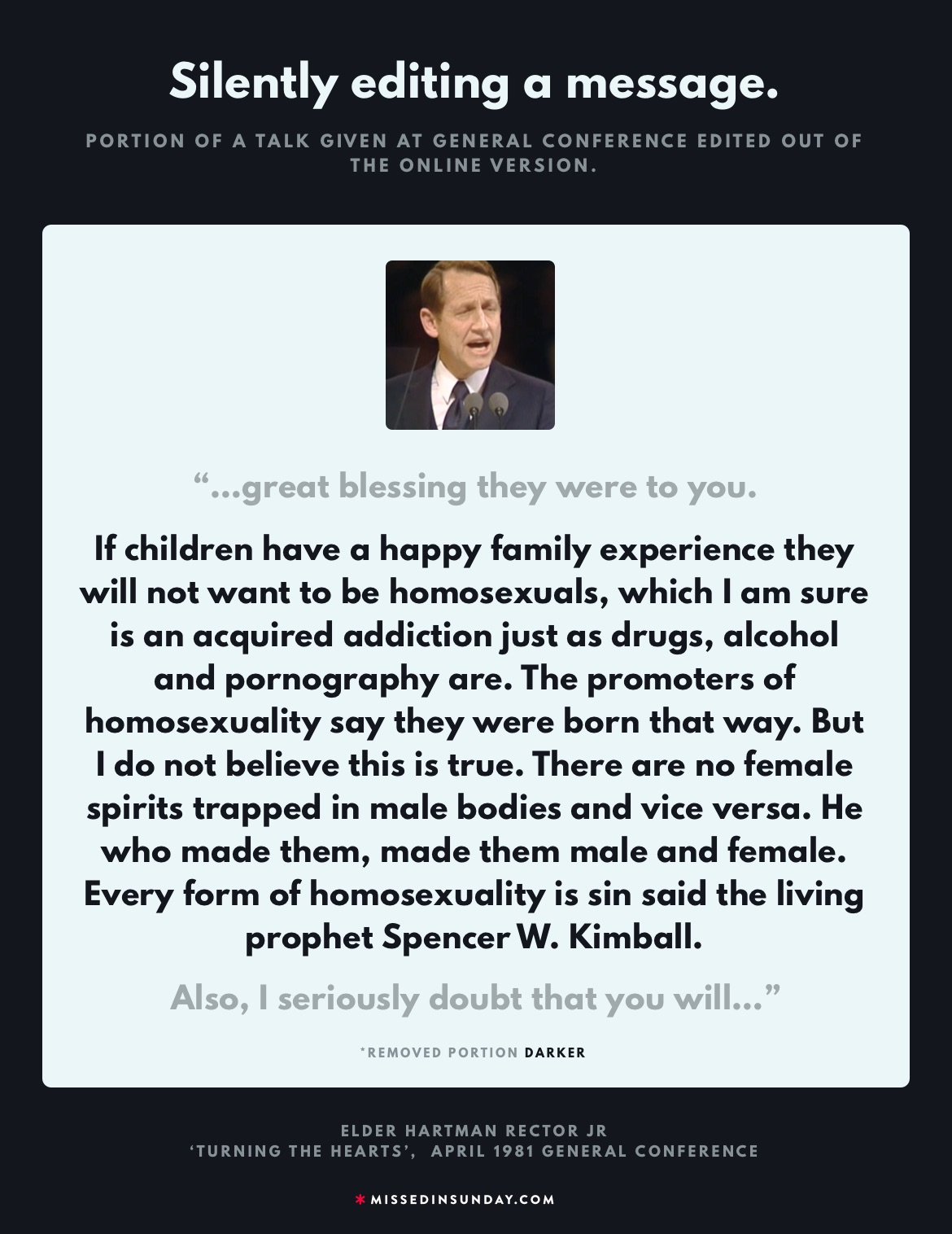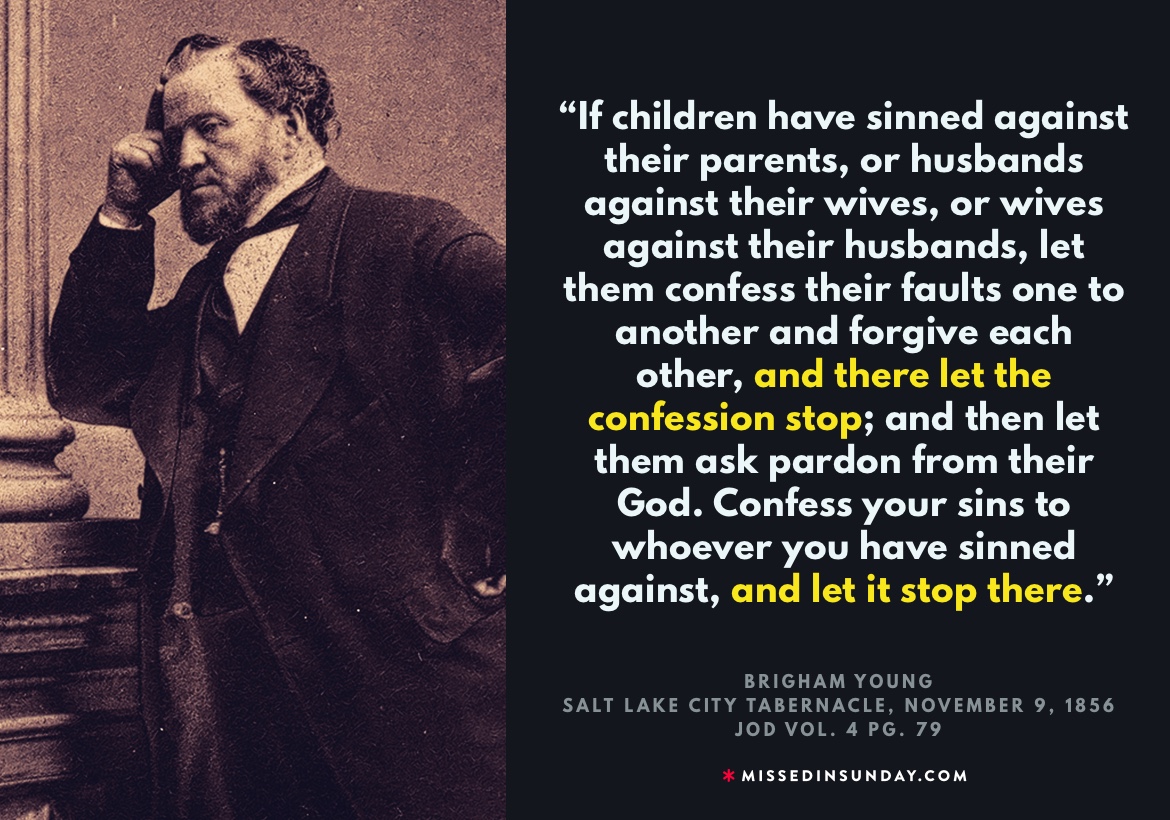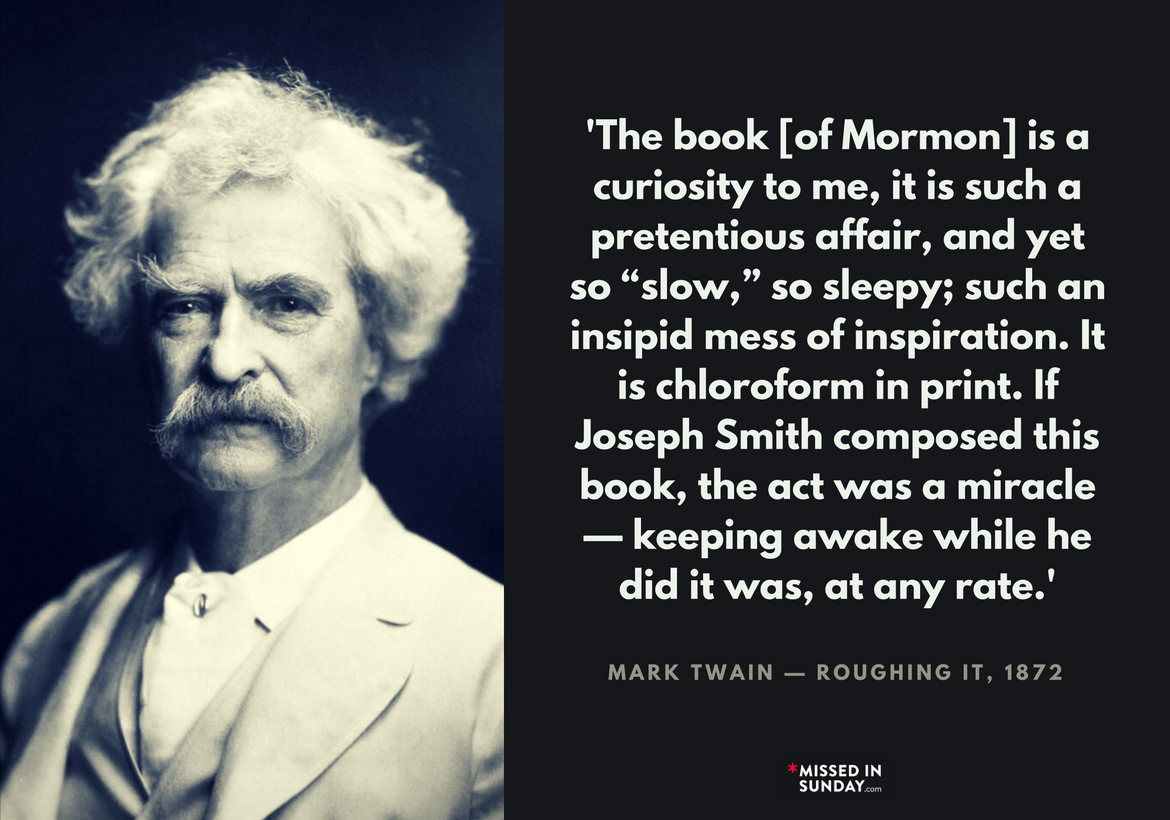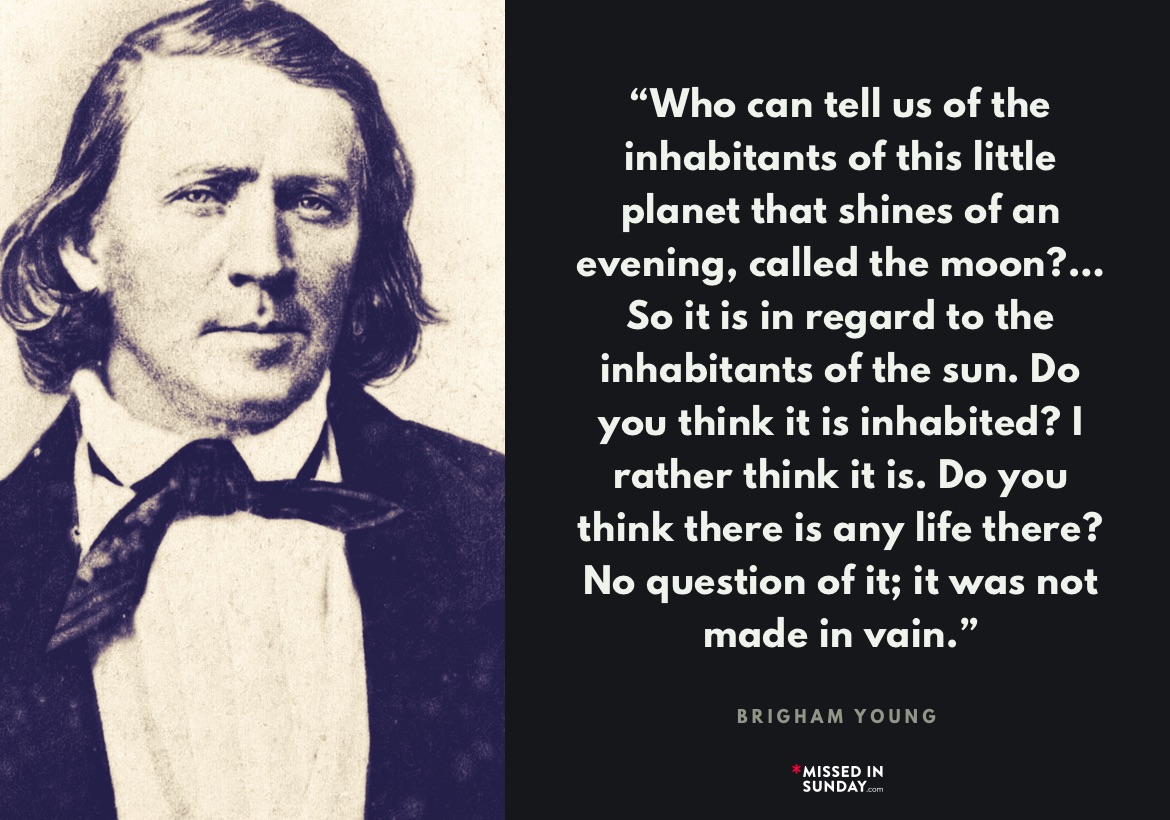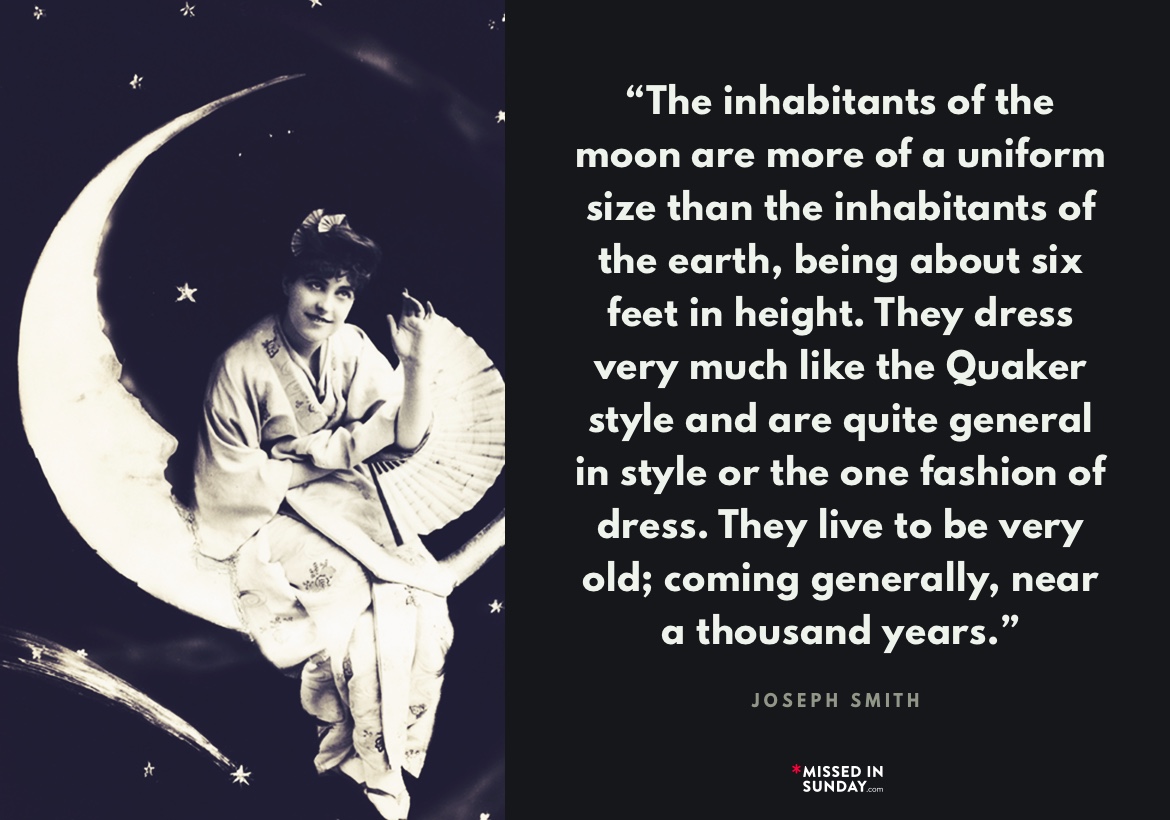3 August 2021, BYU University Conference 1
The Second Half of the Second Century
BYU Annual University Conference
August 23, 2021
By Elder Jeffrey R. Holland
Someone once told me that the young speak of the future because they have no past, while the elderly speak of the past because they have no future. Although it damages that little aphorism, I come to you as the veritable Ancient of Days to speak of the future of BYU, but a future anchored in our distinctive past. If I have worded that right, it means I can talk about anything I want.
I am grateful that the full university family is gathered today — faculty, staff, and administration. Regardless of your job description, I am going to speak to all of you as teachers because at BYU that is what all of us are. Thank you for being faithful role models in that regard.
I can’t be certain, but I think that it was in the summer of 1948 when I had my first BYU experience. I would have been 7 years old. We were driving back to St. George from one of our rare trips to Salt Lake City. As we came down old highway 91, I saw high on the side of one of the hills a huge block “Y” — white and bold and beautiful.
I don’t know how to explain that moment, but it was a true epiphany for a 7-year-old. If I had seen that “Y” on the drive up or any other time, I couldn’t remember it. But I saw it that day, and I believe it was a revelation from God. I somehow knew that bold letter meant something special and that it would one day play a significant role in my life. When I asked my mother what it meant, she said it was the emblem of a university. I thought about that for a moment then said quietly, “Well, it must be the greatest university in the world.”
My chance to actually get on campus came in June 1952, four years after that first sighting. That summer I accompanied my parents to one of those early “Leadership Weeks,” a precursor to what is now the immensely popular “Education Week” held on campus. That means I came here for my first BYU experience 69 years ago with a preview of that four years earlier. If anyone in this audience has been coming to this campus longer than that, please come forward and give this talk. Otherwise, sit still and be patient. As Elizabeth Taylor said to her eight husbands, “I won’t be keeping you long.”
My point, dear friends, is simply this: I have loved BYU for nearly three-fourths of a century. Only my service in and testimony of The Church of Jesus Christ of Latter-day Saints, including my marriage and the beautiful children it has given us, have affected me as profoundly as has my decision to attend Brigham Young University. In so testifying, I represent literally hundreds of thousands of other students who say the same thing.
So, for legions of us over the years, I say: “Thank you for what you do. Thank you for classes taught and meals served and grounds so well kept. Thank you for office hours and lab experiments and testimonies shared — gifts given to little people like me so we could grow up to be big people like you. Thank you for choosing to be at BYU because your choice affected our choice and, like Mr. Frost’s poetic path, “that has made all the difference.”[1]
I asked President Worthen for a sample of the good things that have been happening of late, and I was delighted at the sheaf of items he gave me — small type, single-spaced lines — everything from academic recognitions and scholarly rankings to athletic success and the reach of BYUtv. Karl G. Maeser would be as proud as I was.
But Kevin and I both know those aren’t the real success stories of BYU. These are rather, as some say of ordinances in the Church, “outward signs of an inward grace.” The real successes at BYU are the personal experiences that thousands here have had, personal experiences difficult to document or categorize or list. Nevertheless, these are so powerful in their impact on the heart and mind that they have changed us forever.
I run a risk in citing any examples beyond my own but let me mention just one or two.
One of our colleagues seated here this morning speaks of his first semester, pre-mission enrollment in my friend Wilford Griggs’s History of Civilization class. But this was going to be civilization seen through a BYU lens. So as preambles to the course, Wilf had the students read President Spencer W. Kimball’s “Second Century Address”[2] and the first chapter of Hugh Nibley’s Approaching Zion.[3]
Taken together, our very literate friend says these two readings “forged an indestructible union in my mind and heart between two soaring ideals — that of a consecrated university with that of a holy city. Zion, I came to believe, would be a city with a school [and I would add, a temple, creating] something of a celestial college town, or perhaps a college kingdom.”
After his mission, our faculty friend returned to Provo where he fell under the soul-expanding spell of John Tanner, “the platonic ideal of a BYU professor — superbly qualified in every secular sense, totally committed to the kingdom, and absolutely effervescing with love for the Savior, His students, and His subject. He moved seamlessly from careful teacher analysis to powerful personal testimony. He knew scores of passages from Milton and other poets by heart, [yet] verses of scripture flowed, if anything, even more freely from the abundance of his consecrated heart: I was unfailingly edified by the passion of his teaching and the eloquence of his example.”[4]
Why would such an one come to teach at BYU after a truly distinguished post-graduate experience that might well have taken him to virtually any university in America? Because, our colleague says, “In a coming day the citizens of Zion ‘shall come forth with songs of everlasting joy’ [Moses 7:53]. I hope,” he writes, “to help my students hear that chorus in the distance and to lend their own voices, in time, to its swelling refrain.”[5]
Such are the experiences we hope to provide our students at BYU, though probably not always so poetically expressed. Then, imagine the pain that comes with a memo like this one I recently received. These are just a half-dozen lines from a two-page document:
“You should know,” the writer says, “that some people in the extended community are feeling abandoned and betrayed by BYU. It seems that some professors (at least the vocal ones in the media) are supporting ideas that many of us feel are contradictory to gospel principles, making it appear to be about like any other university our sons and daughters could have attended. Several parents have said they no longer want to send their children here or donate to the school.
“Please don’t think I’m opposed to people thinking differently about policies and ideas,” the writer continues. “I’m not. But I would hope that BYU professors would be bridging those gaps between faith and intellect and would be sending out students that are ready to do the same in loving, intelligent and articulate ways. Yet, I fear that some faculty are not supportive of the Church’s doctrines and policies and choose to criticize them publicly. There are consequences to this. After having served a full-time mission and marrying her husband in the temple, a friend of mine recently left the church. In her graduation statement on a social media post, she credited [such and such a BYU program and its faculty] with the radicalizing of her attitudes and the destruction of her faith.”[6]
Fortunately, we don’t get many of those letters, but this one isn’t unique. Several of my colleagues get the same kind, with most of them ultimately being forwarded to poor President Worthen. Now, most of what happens on this campus is wonderful. That is why I began as I did, with my own undying love of this place. But every so often we need a reminder of the challenge we constantly face here.
Here is what I said on this subject exactly 41 years ago almost to the day. I had been president for all of three weeks.
I said then and I say now that if we are an extension of The Church of Jesus Christ of Latter-day Saints, taking a significant amount of sacred tithes and other precious human resources, all of which might well be expended in other worthy causes, surely our integrity demands that our lives be absolutely consistent with and characteristic of the restored gospel of Jesus Christ. At a university there will always be healthy debate regarding a whole syllabus full of issues. But until “we all come [to] the unity of the faith, and . . . [have grown to] the measure of the stature of the fulness of Christ,”[7] our next best achievement will be to stay in harmony with the Lord’s anointed, those whom He has designated to declare Church doctrine and to guide Brigham Young University as its trustees.[8]
In 2014, seven years ago, then-Elder Russell M. Nelson came to campus in this same setting. His remarks were relatively brief, but tellingly he said:
“With the Church growing more rapidly in the less prosperous countries, we . . . must conserve sacred funds more carefully than ever before.
“At BYU we must ally ourselves even more closely with the work of our Heavenly Father. . . .
“A college education for our people is a sacred responsibility, [but] it is not essential for eternal life.”[9]
A statement like that gets my attention, particularly because just a short time later President Nelson chairs our Board, holds our purse strings, and has the final “yea” or “nay” on every proposal we make from a new research lab, to more undergrad study space, to approving a new pickup for the physical facilities staff! Russell M. Nelson is very, very good at listening to us. We who sit with him every day have learned the value of listening carefully to him.
Three years later, 2017, Elder Dallin H. Oaks, not then but soon to be in the First Presidency where he would sit, only one chair — one heartbeat — away from the same position President Nelson now has, quoted our colleague Elder Neal A. Maxwell who had said:
“In a way[,] [Latter-day Saint] scholars at BYU and elsewhere are a little bit like the builders of the temple in Nauvoo, who worked with a trowel in one hand and a musket in the other. Today scholars building the temple of learning must also pause on occasion to defend the kingdom. I personally think,” Elder Maxwell went on to say, “this is one of the reasons the Lord established and maintains this university. The dual role of builder and defender is unique and ongoing. I am grateful we have scholars today who can handle, as it were, both trowels and muskets.”[10]
Then Elder Oaks said challengingly, “I would like to hear a little more musket fire from this temple of learning.”[11] He said this in a way that could have applied to a host of topics in various departments, but the one he specifically mentioned was the doctrine of the family and defending marriage as the union of a man and a woman. Little did he know that while many would hear his appeal, especially the School of Family Life who moved quickly and visibly to assist, some others fired their muskets all right, but unfortunately didn’t always aim at those hostile to the Church. A couple of stray rounds even went north of the point of the mountain!
My beloved brothers and sisters, “a house divided against itself . . . cannot stand,”[12] and I will go to my grave pleading that this institution not only stands but stands unquestionably committed to its unique academic mission and to the Church that sponsors it. We hope it isn’t a surprise to you that your Trustees are not deaf or blind to the feelings that swirl around marriage and the whole same-sex topic on campus. I and many of my Brethren have spent more time and shed more tears on this subject than we could ever adequately convey to you this morning, or any morning. We have spent hours discussing what the doctrine of the Church can and cannot provide the individuals and families struggling over this difficult issue. So, it is with scar tissue of our own that we are trying to avoid — and hope all will try to avoid — language, symbols, and situations that are more divisive than unifying at the very time we want to show love for all of God’s children.
If a student commandeers a graduation podium intended to represent everyone getting diplomas in order to announce his personal sexual orientation, what might another speaker feel free to announce the next year until eventually anything goes? What might commencement come to mean — or not mean — if we push individual license over institutional dignity for very long? Do we simply end up with more divisiveness in our culture than we already have — and we already have too much everywhere.
In that spirit, let me go no farther before declaring unequivocally my love and that of my Brethren for those who live with this same-sex challenge and so much complexity that goes with it. Too often the world has been unkind, in many instances crushingly cruel, to these our brothers and sisters. Like many of you, we have spent hours with them, and wept and prayed and wept again in an effort to offer love and hope while keeping the gospel strong and the obedience to commandments evident in every individual life.
But it will assist everyone in providing such help if things can be kept in some proportion and balance in the process. For example, we have to be careful that love and empathy do not get interpreted as condoning and advocacy, or that orthodoxy and loyalty to principle not be interpreted as unkindness or disloyalty to people. As near as I can tell, Christ never once withheld His love from anyone, but He also never once said to anyone, “Because I love you, you are exempt from keeping my commandments.” We are tasked with trying to strike that same sensitive, demanding balance in our lives.
Musket fire? Yes, we will always need defenders of the faith, but “friendly fire” is a tragedy — and from time to time the Church, its leaders and some of our colleagues within the university community have taken such fire on this campus. And sometimes it isn’t friendly — wounding students and the parents of students who are confused about what so much recent flag-waving and parade-holding on this issue means. Beloved friends, this kind of confusion and conflict ought not to be. There are better ways to move toward crucially important goals in these very difficult matters — ways that show empathy and understanding for everyone while maintaining loyalty to prophetic leadership and devotion to revealed doctrine. My Brethren have made the case for the metaphor of musket fire, which I have endorsed yet again today. There will continue to be those who oppose our teachings and with that will continue the need to define, document, and defend the faith. But we do all look forward to the day when we can “beat our swords into plowshares, and [our] spears into pruning hooks,” and at least on this subject, “learn war [no] more.”[13] And while I have focused on this same-sex topic this morning more than I would have liked, I pray you will see it as emblematic of a lot of issues our students and community face in this complex, contemporary world of ours.
But I digress! Back to the blessings of a school in Zion! Do you see the beautiful parallel between the unfolding of the Restoration and the prophetic development of BYU, notwithstanding that both will have critics along the way? Like the Church itself, BYU has grown in spiritual strength, in the number of people it reaches and serves, and in its unique place among other institutions of higher education. It has grown in national and international reputation. More and more of its faculty are distinguishing themselves and, even more importantly, so are more and more of its students.
Reinforcing the fact that so many do understand exactly what that unfolding dream of BYU is, not long ago one of your number wrote to me this marvelous description of what he thought was the “call” to those who serve at BYU:
“The Lord’s call [to those of us who serve at BYU] is a . . . call to create learning experiences of unprecedented depth, quality and impact. . . . As good as BYU is and has been, this is a call to do [better]. It is . . . a call to educate many more students, to more . . . effectively help them become true disciples of Jesus Christ, to prepare them to . . . lead in their families, in the Church, in their [professions, and] in a world filled with commotion. . . . But [answering this call] . . . cannot be [done successfully] without His . . . help . . . I believe,” the writer concludes,” that help will come according to the faith and obedience of the tremendously good people of BYU.”[14]
I agree enthusiastically with such a sense of calling here and with that reference to and confidence in “the tremendously good people of BYU.”[15] Let me underscore that idea of such a call by returning to President Kimball’s “Second Century Address.”
Our bright, budding new Commissioner of Education, Elder Clark Gilbert, is my traveling companion today. You may be certain that he loves this institution, his alma mater, deeply and brings to his assignment a reverence for its mission and message. As part of his introduction to you, I am asking Elder Gilbert to come on campus on any calendar he and President Worthen can work out, and whether those visits are formal or casual or both, I hope they can accomplish two things: First of all, I hope you will come to see quickly the remarkable strengths Elder Gilbert brings to his calling, even as he learns more about the flagship of his fleet and why our effort at a Church Educational System would be a failure without the health, success, and participation of BYU. Second, noting that we are just a few years short of halfway through those second hundred years of which President Kimball spoke, I think it would be fascinating to know if we are, in fact, making any headway on the challenges he laid before us and of which Elder David Bednar reminded the BYU Leadership team just a few weeks ago.
When you look at President Kimball’s talk again, a copy of which will be distributed following this conference, may I ask you to pay particular attention to that sweet prophet’s effort to ask that we be unique. In his discourse, President Kimball used the word “unique” eight times, and “special” eight times. It seems clear to me in my 73 years of loving it that BYU will become an “educational Mt. Everest” only to the degree it embraces its uniqueness, its singularity.[16] We could mimic every other university in the world until we got a bloody nose in the effort and the world would still say, “BYU who?” No, we must have the will to stand alone, if necessary, being a university second to none in its role primarily as an undergraduate teaching institution that is unequivocally true to the gospel of the Lord Jesus Christ in the process. If at a future time that mission means foregoing some professional affiliations and certifications, then so be it. There may come a day when the price we are asked to pay for such association is simply too high, too inconsistent with who we are. No one wants it to come to that, but, if it does, we will pursue our own destiny, a “destiny [that] is not a matter of chance; [but largely] a matter of choice; . . . not a thing to be waited for, [but] a thing to be [envisioned and] achieved.”[17]
“Mom, what is that big ‘Y’ on that mountain?”
“It stands for the university here in Provo: Brigham Young University.”
“Well, it must be the greatest university in the world.”
And so for Jeff Holland, it is. To help you pursue that destiny in the only real way I know how to help, I leave an apostolic blessing on every one of you as you start another school year. In the name of the Lord Jesus Christ, and with gratitude for His holy priesthood, I bless you personally, bless the students who will come under your influence, and bless the university as a campus-wide endeavor. I bless you that profound personal faith will be your watchword and the unending blessings of personal rectitude will be your eternal reward. I bless your professional work that it will be admired by your peers, and I bless your devotion to gospel truths that it will be the saving grace in some student’s life. I bless your families that those you hope will be faithful in keeping their covenants will be saved at least in part because you have been faithful in keeping yours. Light conquers darkness. Truth triumphs against error. Goodness is victorious over evil in the end.
I bless each one of you with every righteous desire of your heart and thank you for giving your love and loyalty to BYU. Please. From one who owes so much to this school and has loved her so deeply for so long, keep her not only standing but standing for what she uniquely and prophetically was meant to be. May the rest of higher education “see your good works, and glorify [our] Father which is in heaven.”[18] I pray, in the name of Jesus Christ, amen.
[1] See Robert Frost, “The Road Not Taken,” Mountain Interval (New York: Henry Holt and Co., 1916), 9, Google Books, accessed Aug. 12, 2021.
[2] Spencer W. Kimball, “Second Century Address,” BYU Studies Quarterly vol. 16, no. 4 (Oct. 1976): 455–457, accessed Aug. 12, 2021, available at https://scholarsarchive.byu.edu/byusq/vol16/iss4/2.
[3] Hugh Nibley, “Our Glory or Our Condemnation,” Approaching Zion, vol. 9 of The Collected Works of Hugh Nibley, ed. by Don E. Norton(Salt Lake City: Deseret Book, 1989), 1–24.
[4] Personal correspondence, August 1, 2021.
[5] Personal correspondence, August 1, 2021. Scripture quoted is Moses 7:53.
[6] Personal correspondence, June 10, 2021
[7] Ephesians 4:13.
[8] See Jeffrey R. Holland, “The Bond of Charity,” Annual University Conference, Aug. 26, 1980.
[9] Russell M. Nelson, “Controlled Growth,” BYU Leadership Meeting, Aug. 25, 2014.
[10] Neal A. Maxwell, “Blending Research and Revelation,” remarks at the BYU President’s Leadership Council meetings, 19 March 2004; quoted in Dallin H. Oaks, “Challenges to the Mission of Brigham Young University,” Commencement Address, Apr. 21, 2017.
[11] Dallin H. Oaks, “It Hasn’t Been Easy,” BYU commencement address, Aug. 14, 2014, quoted in Dallin H. Oaks, “Challenges to the Mission of Brigham Young University,” BYU commencement address, April 2017.
[12] Mark 3:25.
[13] Isaiah 2:4.
[14] Personal correspondence, June 21, 2021.
[15] Ibid.
[16] See Spencer W. Kimball, “Second Century Address,” BYU Studies Quarterly vol. 16, no. 4 (Oct. 1976): 455, accessed Aug. 12, 2021, available at https://scholarsarchive.byu.edu/byusq/vol16/iss4/2.
[17] William Jennings Bryan, Speeches of William Jennings Bryan vol. 2 (New York: Funk and Wagnalls, Co., 1913), 11, Google Books, accessed Aug. 12, 2021.
[18] Matthew 5:16; see also 3 Nephi 12:16.
References
| 1 | Elder Jeffrey R. Holland Urges BYU to Embrace Its Uniqueness, Stay True to the Savior – https://newsroom.churchofjesuschrist.org/article/elder-jeffrey-r-holland-2021-byu-university-conference#_edn11 |
|---|





